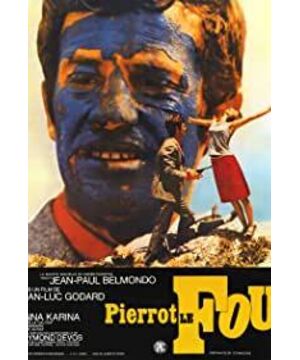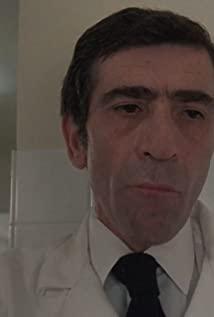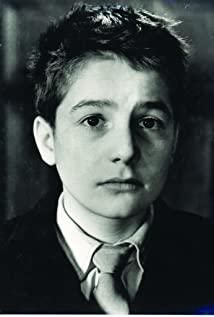Text: Yaren
Public account: Abandon the book
Introduction: Earlier, on December 3, we were still counting the days in the small dark room that was banned. The French New Wave veteran Godard celebrated his 91st birthday. Earlier, on September 6, Jean-Paul Belmondo, the star of masterpieces such as "Pierro the Madman", "Exhausted" and "A Woman is a Woman" passed away. For a time, the condolences at home and abroad seemed to point to the "New Wave" itself again. In fact, the embarrassment of film history lies in the fact that there is no room for sentimental nostalgia in a span of several decades. The "new wave" is still happening.
Every time Marianne calls Ferdinand Pierrot, Pierrot repeats: "My name is Ferdinand." The two are constantly fighting over the signifier "name," because the signification behind the two symbols and the final Pointing to something completely different.
Pierrot and Ferdinand's perceptions of themselves as perceived by Marianne overlap, which is the basis of their love, but there are more irreconcilable differences between the two identities. It led to the tragedy of love and the collapse of the main body.
In Italian improv comedy, "Pierro" means the image of the jester in the feudal court for the entertainment of the emperor, an ugly and well-behaved clown. It's just that in "Piero the Madman", the object of his delight is no longer the court emperor, but Marianne.
The queen-like Mariana is a desiring subject constructed by the wonderful pleasures and beast-like destruction of capitalist civilization. She is destructive, free to rob and kill, abandon or fall in love; she disregards etiquette and norms, is uneasy in the simple country life, and longs for music, dance, consumption and real strong feelings. The love that was cherished in the classical period has become her hedonic capital, and the spending of money, both real and false, constitutes an exchange chip for the pleasant love game.
Mariana exposes the libido of human nature to crazy crime and adventure, bringing countless chaos to the stereotyped and monotonous life of the bourgeoisie. Ferdinand is close to an existential poet, he loves philosophy, literature and art, is close to nature, yearns for a simple life, and ponders the meaning of existence in murmurs.
A long-term boredom with urban civilization and high society drove him to flee Paris with Marianne and embark on a deviant and criminal path.
After walking away, they fully breathed the free air and shared many thrilling but sweet moments, but just as Ferdinand could never become Pierrot who lived to please Marianne, Marianne and Ferdinand were the same. The contradiction between "Pierro" and "Ferdinand" cannot be reconciled. The madness of love accelerates the process of exposing contradictions.
Mariana's huge desire for destruction constantly devoured Ferdinand's weak feelings. She was increasingly dissatisfied with him, and Ferdinand couldn't tolerate Marianne's inflated desire for pleasure. In this love, it was difficult for him to find a suitable position.
The battle for the name is also a tug of war between lovers. Ferdinand is unwilling to become the manipulated harlequin Pierre. However, even if he hates the other party's desires, he cannot get rid of his own desires. He longs for the curves of Marianne's body and her Beautiful buttocks, eager to kiss her.
Marianne demanded from him real and strong feelings, and all Ferdinand could offer was tender verses, and a certain fetish sensuality. Obviously, he loves literature, philosophy and art more, and the self that these values have shaped, and then a concrete lover. Their duet arguing with each other in the woods clearly embodies the conflict in their emotional and value orientations.
The irreconcilable conflict is tearing apart the hero's image as the plot advances, and the madness of love and introspection are piled up on this overwhelmed weak heart. After a long separation, Pierrot and Ferdinand , whom Marianne desired, became more and more divided and deviated from their self-recognition. In the end, the exposed lies revealed that Ferdinand's divided subjects could no longer be reintegrated. the truth.
Marianne withdrew her love proudly, refusing to fill the void within this rout subject, irritated and powerless, and shot her lover in desperation.
At the beginning of the film, the youngest daughter stands by the bathtub and listens to him read the biography of Vilas Gates. Perhaps Ferdinand is not a successful father in the standard sense, but at least he pleases the children, sows the seeds of beauty in the children's hearts, and is a qualified father. The kind of life he is tired of, there are still some innocent and tender feelings worth nostalgic.
Marianne, well aware that once they set out on a criminal escape, there is no turning back, keeps asking Pierrot if he still misses the lady's wife and children. Ferdinand, who kept saying that he was tired of that kind of life, couldn't get rid of it completely, so he called home.
Facing Marianne's unscrupulous desire to destroy, Ferdinand has some concerns and is eager to solve the problem of money in a more "civilized" way. Therefore, when Marianne wants to rob the group of Americans, he offers to perform Dramatic advice, also earning money.
It can be said that Ferdinand's self-recognition is closer to an idealized image of the bourgeoisie.
Ferdinand's tender nostalgia contrasts with Marianne's wild indulgence, which not only shows that this is a pair of uncommunicative lovers whose love is doomed to tragedy, its deeper meaning is that when a heterogenous other Because the occurrence of love invades and surpasses the contrast, the subject falls into the dilemma of dilemma.
We don't know what Ferdinand was thinking at the moment when he wanted to kill the lead, maybe it was his decent life, maybe he wanted to go back and start from scratch, to kill the impulse to crime and adventure. Paris is cold but gentle, perhaps a kind of protection to his tender feelings.
Ferdinand, who killed Marianne, has been completely reduced to Pierrot, and his actions seem so ridiculous. The man on this isolated island is finally left with a broken and empty subject. He is accompanied by the man who once gave him hope to replenish and store him. Mariana of carnal desire. That lively and fiery life is now a dead thing, and Pierrot, whom she named, is doomed to self-destruction. Overwhelmed, the comedy is over, and the lead cannot be extinguished.
Marianne was not just killed by Pierrot, whom she named, this image of pleasure in destruction, destruction for pleasure's sake, was in danger of self-destruction.
She is like an inexhaustible desire machine, rushing towards the end of destruction. She longs for real and strong feelings, but her attitude towards love is cynical. It doesn't matter to her whether she is sincere or deceived. What matters is that Ferdinand is willing to play Pierrot, give love and accompany her. She takes risks, obeys and pleases her desires.
At the end of the film, the hoax was exposed, Marianne threw herself into the arms of her "brother", and the useless Pierrot and the failed Ferdinand were left behind. However, how could her surging desires stop here?
"Brother" might just be a new name for "Pierro", she saw him as another buffoon, loved him, longed for him, teased him, abandoned him, smashed him, proudly declared his rout.
Marianne is a powerful woman, radiantly releasing desire, men are afraid and intoxicated, tying their happiness and life to her, but she will not stop for anyone; Marianne is also a fragile woman, a man. With power, money, and guns, she has nothing but desire. Love is her only capital. Men's love lubricates the endless operation of this desire machine, but their anger can easily smash and destroy it. Any angry "Pierro" can easily terminate her life.
Marianne is both the object of desire and the subject of desire, carrying Godard's observation and reflection on capitalist civilization.
In France in the 1960s, the vast majority of people were addicted to the hedonic desires of modernity and actively participated in the big capitalist market. Everything was a commodity and everything could be circulated. At this time, love has also become the currency of desire exchange.
Desires are expanding, values are collapsing, but the entire society is accelerating non-stop. Mariana, played by Anna Karina, brings countless chaos to this seemingly peaceful society.
Godard mocks the monotonous bourgeois way of life through her destructiveness, and at the same time her ending pinned Godard's worries about the over-indulgence of youth. If revolution also becomes a kind of desire, then the so-called rebellion is no more than a rebellion. It is a very perishable link in the accelerated society. After the enthusiasm ebbs, there is emptiness and destruction.
Ferdinand, reluctant to abandon his verses and musings, may be Godard's appeal to the mad capitalist civilization, and his advice to enthusiastic revolutionary youth: slow down, pick up the fragments of past civilization, and rebuild the collapse The subject and the lost value.
Whether the appeal is valid, the suggestion is feasible, Ferdinand's or Pierrot's ending reveals undeniable skepticism, but also pain. Pain is true negativity.
Add WeChat account pksbpksb to join the national fan group
View more about Pierrot le Fou reviews











